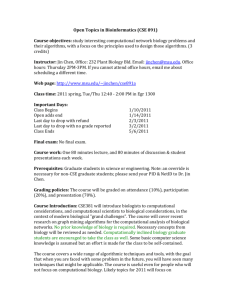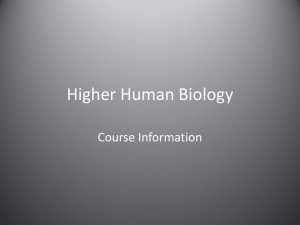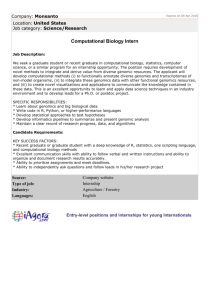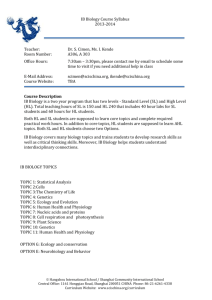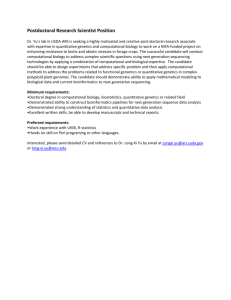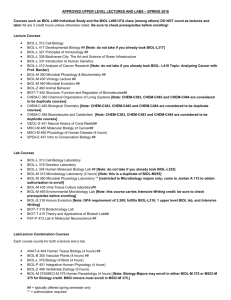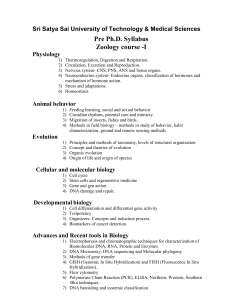Physiology: Modern Cell Biology Using Microscopic, Biochemical
advertisement
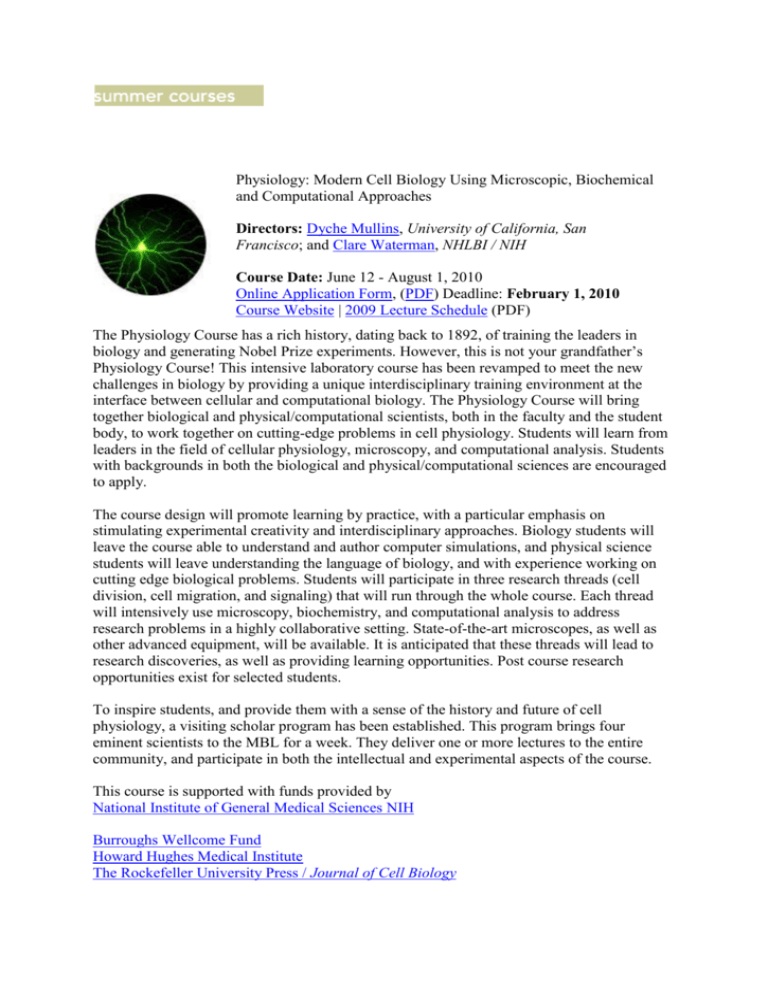
Physiology: Modern Cell Biology Using Microscopic, Biochemical and Computational Approaches Directors: Dyche Mullins, University of California, San Francisco; and Clare Waterman, NHLBI / NIH Course Date: June 12 - August 1, 2010 Online Application Form, (PDF) Deadline: February 1, 2010 Course Website | 2009 Lecture Schedule (PDF) The Physiology Course has a rich history, dating back to 1892, of training the leaders in biology and generating Nobel Prize experiments. However, this is not your grandfather’s Physiology Course! This intensive laboratory course has been revamped to meet the new challenges in biology by providing a unique interdisciplinary training environment at the interface between cellular and computational biology. The Physiology Course will bring together biological and physical/computational scientists, both in the faculty and the student body, to work together on cutting-edge problems in cell physiology. Students will learn from leaders in the field of cellular physiology, microscopy, and computational analysis. Students with backgrounds in both the biological and physical/computational sciences are encouraged to apply. The course design will promote learning by practice, with a particular emphasis on stimulating experimental creativity and interdisciplinary approaches. Biology students will leave the course able to understand and author computer simulations, and physical science students will leave understanding the language of biology, and with experience working on cutting edge biological problems. Students will participate in three research threads (cell division, cell migration, and signaling) that will run through the whole course. Each thread will intensively use microscopy, biochemistry, and computational analysis to address research problems in a highly collaborative setting. State-of-the-art microscopes, as well as other advanced equipment, will be available. It is anticipated that these threads will lead to research discoveries, as well as providing learning opportunities. Post course research opportunities exist for selected students. To inspire students, and provide them with a sense of the history and future of cell physiology, a visiting scholar program has been established. This program brings four eminent scientists to the MBL for a week. They deliver one or more lectures to the entire community, and participate in both the intellectual and experimental aspects of the course. This course is supported with funds provided by National Institute of General Medical Sciences NIH Burroughs Wellcome Fund Howard Hughes Medical Institute The Rockefeller University Press / Journal of Cell Biology Center for Modular Biology, Harvard University 2010 Faculty Gaudenz Danuser, The Scripps Research Institute Michael Davidson, Florida State University Robert Fischer, NHLBI / National Institutes of Health Daniel Fletcher, University of California, Berkeley Melissa Gardner, Max Planck Institute Ethan Garner, Harvard University John Hammer, NHLBI / National Institutes of Health KC Huang, Stanford University Khuloud Jaquaman, Harvard Medical School Jennifer Lippincott-Schwartz, NICHD, National Institutes of Health Wallace Marshall, University of California, San Francisco Tobias Meyer, Stanford University James Nelson, Stanford University David Odde, University of Minnesota Rob Phillips, California Institute of Technology Steve Ross, Nikon Instruments Kurt Thorn, University of California, San Francisco 2010 Scholars Benny Geiger, Weizmann Institute Peter Walter, University of California, San Francisco Julie Theriot, Stanford University MBLWHOI Library Biological Bulletin Marine Organisms Meetings, Seminars, Events Research/Administrative Services Publications, Databases


